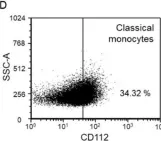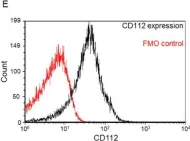Pregnancy involves significant immunological changes to support fetal development while protecting the mother from infections. A growing body of evidence supports the importance of immune checkpoint pathways, especially at the maternal-fetal interface, although limited information is available about the peripheral expression of these molecules by CD8+ and CD8- NK cell subsets during the trimesters of pregnancy. Understanding the dynamics of these immune cells and their checkpoint pathways is crucial for elucidating their roles in pregnancy maintenance and potential complications. This study aims to investigate the peripheral expression and functional characteristics of CD8+ and CD8- NK cell subsets throughout pregnancy, providing insights into their contributions to maternal and fetal health. A total of 34 healthy women were enrolled from the first, 30 from the second and 40 from the third trimester of pregnancy. At the same time, 35 healthy age-matched non-pregnant women formed the control group. From peripheral blood, mononuclear cells were separated and stored at -80 °C. CD8+ and CD8- NK cell subsets were analyzed from freshly thawed samples, and surface and intracellular staining was performed using flow cytometric analyses. The proportions of CD56+ NK cells in peripheral blood were similar across groups. While CD8- NKdim cells increased significantly in all trimesters compared to non-pregnant controls, CD8+ NKdim cells showed no significant changes. CD8- NKbright cells had higher frequencies throughout pregnancy, whereas CD8+ NKbright cells significantly increased only in the first and second trimesters. The expression levels of immune checkpoint molecules, such as PD-1 and PD-L1, and cytotoxic-activity-related molecules were stable, with notable perforin and granzyme B increases in CD8- NKbright cells throughout pregnancy. Our study shows that peripheral NK cell populations, especially CD8- subsets, are predominant during pregnancy. This shift suggests a crucial role for CD8- NK cells in balancing maternal immune tolerance and surveillance. The stable expression of immune checkpoint molecules indicates that other regulatory mechanisms may be at work. These findings enhance our understanding of peripheral immune dynamics in pregnancy and suggest that targeting CD8- NKbright cell functions could help manage pregnancy-related immune complications. This research elucidates the stable distribution and functional characteristics of peripheral NK cells during pregnancy, with CD8- subsets being more prevalent. The increased activity of CD8- NKbright cells suggests their critical role in maintaining immune surveillance. Our findings provide a basis for future studies to uncover the mechanisms regulating NK cell function in pregnancy, potentially leading to new treatments for immune-related pregnancy complications.
Product Citations: 15
CD8+ and CD8- NK Cells and Immune Checkpoint Networks in Peripheral Blood During Healthy Pregnancy.
In International Journal of Molecular Sciences on 6 January 2025 by Meggyes, M., Nagy, D. U., et al.
-
Cardiovascular biology
-
Endocrinology and Physiology
-
Immunology and Microbiology
In International Journal of Molecular Sciences on 31 July 2024 by Szereday, L., Nagy, D. U., et al.
Despite the numerous studies on the clinical aspects of early-onset preeclampsia, our understanding of the immunological consequences of inadequate placenta development remains incomplete. The Th1-predominance characteristic of early-onset preeclampsia significantly impacts maternal immunotolerance, and the role of immune checkpoint molecules in these mechanisms is yet to be fully elucidated. Our study aims to fill these crucial knowledge gaps. A total of 34 pregnant women diagnosed with early-onset preeclampsia and 34 healthy pregnant women were enrolled in this study. A mononuclear cell fragment from the venous blood was separated and frozen. The CD8+ and CD8- NK cell subpopulations were identified and compared to their immune checkpoint molecule expressions using multicolor flow cytometry. The serum CD226 levels were measured by ELISA. Based on our measures, the frequency of the CD8- subpopulation was significantly higher than that of the CD8+ counterpart in both the NKdim and NKbright subsets. Significantly lower CD226 surface expressions were detected in the preeclamptic group compared to healthy women in all the investigated subpopulations. However, while no difference was observed in the level of the soluble CD226 molecule between the two groups, the CD112 and CD155 surface expressions were significantly different. Our study's findings underscore the significant role of the CD8+ and CD8- NK subpopulations in the Th1-dominated immune environment. This deepens our understanding of early-onset preeclampsia and suggests that each subpopulation could contribute to the compensation mechanisms and the restoration of the immunological balance in this condition, a crucial step toward developing effective interventions.
-
Endocrinology and Physiology
-
Immunology and Microbiology
In Oncology Letters on 1 June 2023 by Koh, E. K., Lee, H. R., et al.
Natural killer (NK) cells play a crucial role in early immune defenses against transformed cells and are used in the therapeutic management of cancer. However, it is difficult to sufficiently obtain high purity activated NK cells for clinical application. The function of NK cells is dependent on the balance of activating and inhibitory signals. Strong and diverse stimuli are required to increase the function of NK cells. Radiotherapy modulates the expression of various immunomodulatory molecules that recruit and activate NK cells. NK cell-mediated antibody-dependent cellular cytotoxicity is one of the most potent cytotoxic effects of NK cells against target cancer cells. To generate activated and irradiated autologous peripheral blood mononuclear cells (PBMCs), cytokine and monoclonal antibody stimulation followed by ionizing radiation was performed in the present study. The expanded NK cells were cultured for 21 days using activated/irradiated autologous PBMCs. Colorectal cancer cells (SW480 and HT-29) were used to analyze the expression of NK group 2D ligands and EGFR by radiation. The cytotoxicity of radiation plus NK cell-based targeted therapy against colorectal cancer cell lines was analyzed using flow cytometry. Activated and irradiated PBMCs exhibited significantly increased expression of various activating ligands that stimulated NK cells. In total, >10,000-fold high-purity activated NK cells were obtained, with negligible T-cell contamination. To confirm the antitumor activity of the NK cells expanded by this method, the expanded NK cells were treated with cetuximab, radiotherapy, or a combination of cetuximab and radiotherapy in the presence of human colorectal cancer cells. Expanded NK cells were effective at targeting human colorectal cancer cells, particularly when combined with cetuximab and radiotherapy. Thus, in the present study, a novel method for high-purity activated NK cell expansion was developed using activated and irradiated PBMCs. In addition, combined radiotherapy and antibody-based immunotherapy with expanded NK cells may be an effective strategy to enhance the efficiency of treatment against colorectal cancer.
Copyright: © Koh et al.
-
FC/FACS
-
Homo sapiens (Human)
-
Cancer Research
In International Journal of Molecular Sciences on 10 January 2023 by Meggyes, M., Feik, T., et al.
Although many studies have investigated the clinical aspect of early-onset preeclampsia, our knowledge about the immunological consequences of improper placenta development is scarce. The maternal immunotolerance against the fetus is greatly influenced by the Th1 predominance developed by the mother's immune system. Thirty-two early-onset preeclamptic and fifty-one healthy pregnant women with appropriately matched gestational age were involved in our study. Mononuclear cells were separated from peripheral venous blood and the frequency of CD8⁺, CD4⁺, double positive (DP), and double negative (DN) NKT cell subpopulations was determined using multicolor flow cytometry. Following the characterization, the expression levels of different immune checkpoint receptors and ligands were also defined. Soluble CD226 levels were quantified by ELISA. Novel and significant differences were revealed among the ratios of the investigated NKT subsets and in the expression patterns of PD-1, LAG-3, TIGIT and CD226 receptors. Further differences were determined in the expression of CD112, PD-1, LAG-3 and CD226 MFI values between the early-onset preeclamptic and the healthy pregnant groups. Our results suggest that the investigated NKT subpopulations act differently in the altered immune condition characteristic of early-onset preeclampsia and indicate that the different subsets may contribute to the compensation or maintenance of Th1 predominance.
-
Endocrinology and Physiology
-
Immunology and Microbiology
Examination of the TIGIT-CD226-CD112-CD155 Immune Checkpoint Network during a Healthy Pregnancy.
In International Journal of Molecular Sciences on 15 September 2022 by Meggyes, M., Nagy, D. U., et al.
Background: The importance of immune checkpoint molecules is well known in tumor and transplantation immunology; however, much less information is available regarding human pregnancy. Despite the significant amount of information about the TIGIT and CD226 immune checkpoint receptors in immune therapies, very little research has been conducted to study the possible role of these surface molecules and their ligands (CD112 and CD155) during the three trimesters of pregnancy. Methods: From peripheral blood, immune cell subpopulations were studied, and the surface expression of immune checkpoint molecules was analyzed by flow cytometry. Soluble immune checkpoint molecule levels were measured by ELISA. Results: Notable changes were observed regarding the percentage of monocyte subpopulation and the expression of CD226 receptor by CD4+ T and NKT cells. Elevated granzyme B content by the intermediate and non-classical monocytes was assessed as pregnancy proceeded. Furthermore, we revealed an important relationship between the CD226 surface expression by NKT cells and the serum CD226 level in the third trimester of pregnancy. Conclusions: Our results confirm the importance of immune checkpoint molecules in immunoregulation during pregnancy. CD226 seems to be a significant regulator, especially in the case of CD4+ T and NKT cells, contributing to the maternal immune tolerance in the late phase of pregnancy.
-
Endocrinology and Physiology
-
Immunology and Microbiology
In Biomedicines on 3 November 2021 by Szereday, L., Nagy, D. U., et al.
Fig.8.D

-
FC/FACS
-
Homo sapiens (Human)
Collected and cropped from Biomedicines by CiteAb, provided under a CC-BY license
Image 1 of 2
In Biomedicines on 3 November 2021 by Szereday, L., Nagy, D. U., et al.
Fig.8.E

-
FC/FACS
-
Homo sapiens (Human)
Collected and cropped from Biomedicines by CiteAb, provided under a CC-BY license
Image 1 of 2

